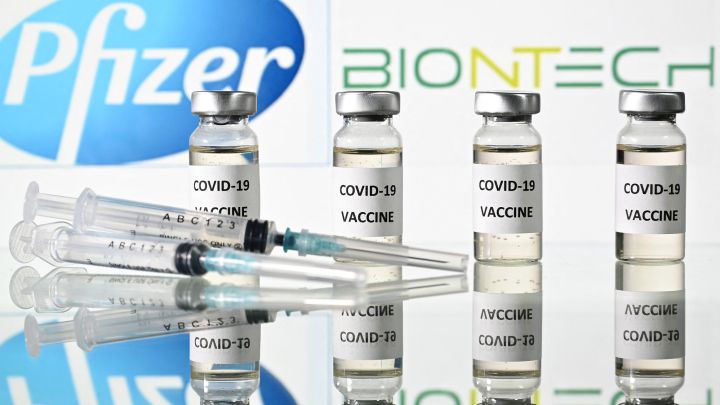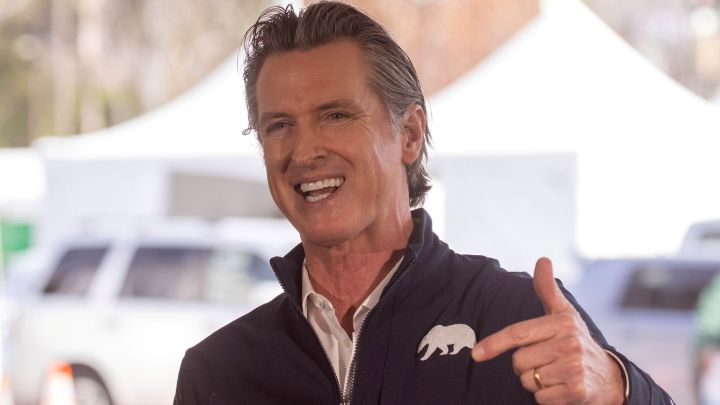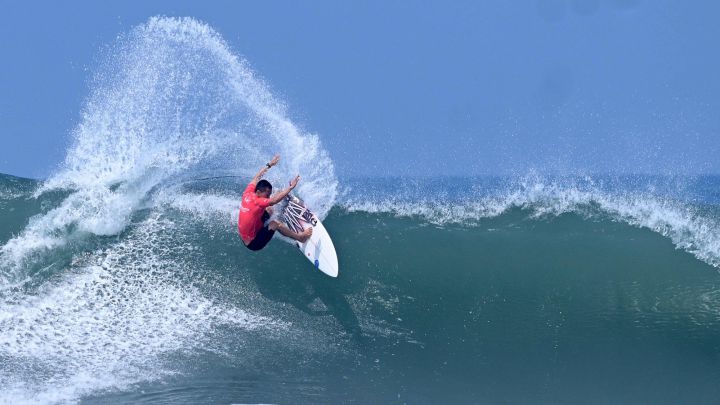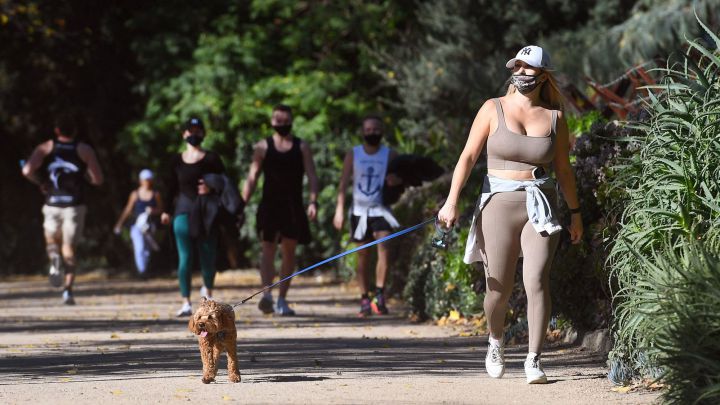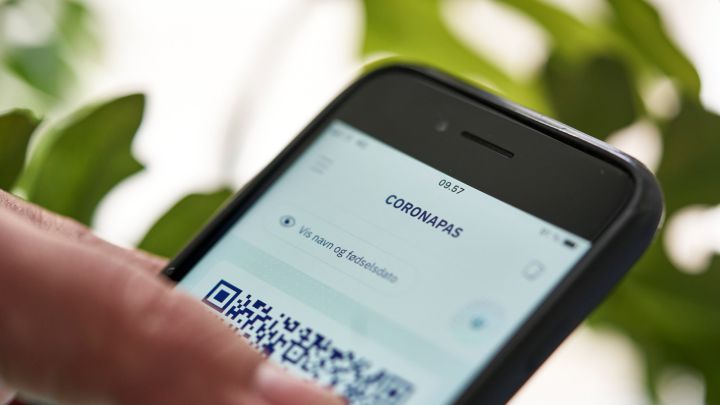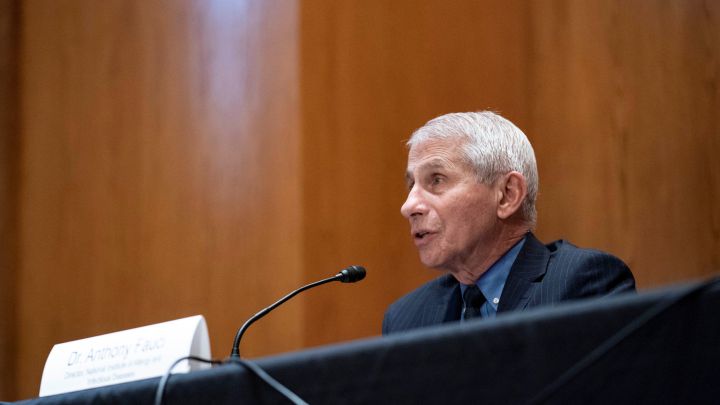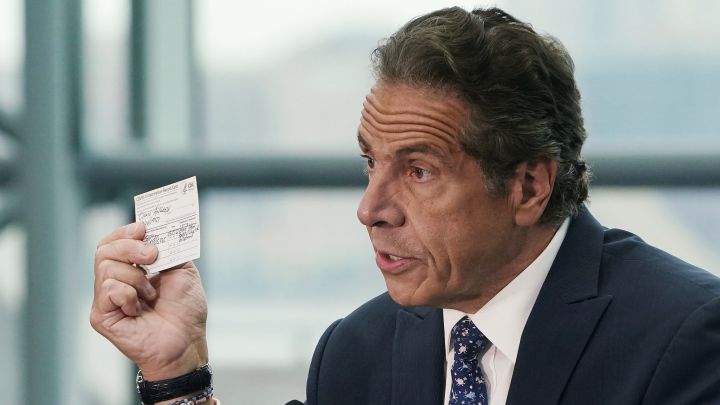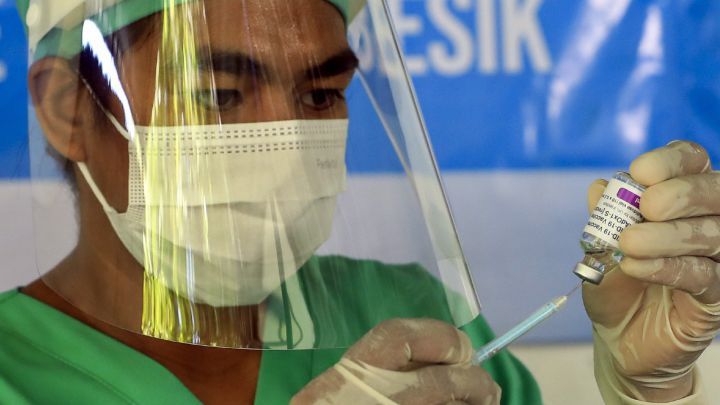Covid-19 vaccine US news summary: Monday 7 June 2021
Keep up to date with the latest vaccine news in the US, where over 50% of the adult population have now been fully vaccinated against the coronavirus.
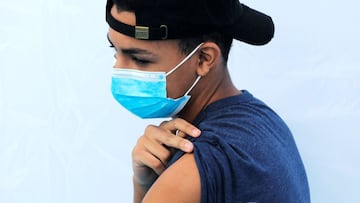
Show key events only
Headlines
- US surpasses 300m vaccine dose milestone, as 41.9% of total population now fully vaccinated.
- New York the first US state to introduce a vaccine passport (find out more)
- US to deliver 80 million doses to COVAX facility
- China reports first case of H10N3 bird flu in a human (full story)
- Possible benefits of receiving two different covid vaccines, per new data (find out more)
- WHO grants China's Sinovac vaccine emergency authorization
- Japan confident Olympic Games will go ahead as 10,000 volunteers stand down
- India in talks over Sputnik Light vaccine
- GAVI in talks with China over expanding COVAX facility
- Over 50% of US adults now fully vaccinated; Biden calls the milestone "a big deal"
- Pfizer and BioNTech pledge to give one billion doses to low- and middle-income countries by end of year
- California won’t create vaccine passport, but large events may require vaccine/test proof
- Over 139.7 million in the US now fully vaccinated (track CDC data here)
- US covid-19: 33.37 million cases / 597,903 deaths (live updates from JHU)
Take a look at some of our related articles:
Guangdong steps up Covid-19 testing as infections mount
China's southern Guangdong province, spooked by a rise in coronavirus infections since May, stepped up mass testing this week in a handful of cities, including those that have yet to report a single case.
While the numbers of confirmed infections and asymptomatic cases remain small compared to massive outbreaks seen in other countries such as India and Brazil, China is taking no chances. Guangdong, China's manufacturing hub and biggest province by economic output, has reported more than 110 confirmed cases since 21 May. Its provincial capital Guangzhou has accounted for almost 90% of the confirmed cases, spurring the city of over 18 million people to ramp up mass testing.
Since starting the mass testing on 26 May, Guangzhou has taken nearly 28 million nucleic acid samples, with 40 people showing positive for coronavirus, a spokesperson of the city's health authority told reporters on Tuesday. Many people have been tested multiple times.
A worker at Yantian port in Shenzhen, a city of more than 17 million people, tested positive after 11 previous tests from 21 May to 1 June came back negative. His village has since undergone five rounds of nucleic acid tests. Guangzhou, Shenzhen and Foshan at different times have launched mass testing after reporting infections. Zhongshan and Jiangmen - two cities in Guangdong that have yet to report any cases - also initiated mass testing earlier this week as a precautionary step.
Singapore, since the weekend, has barred short-term visitors who have been to Guangdong within the last 21 days. For 7 June, China reported 33 new coronavirus cases on the mainland, up from 19 cases a day earlier, the health authority said on Tuesday. Of the new cases, 19 were local transmissions from Guangdong, the National Health Commission said.
China also reported 16 new asymptomatic infections, compared with 21 a day earlier. China does not classify symptom-less infections as confirmed cases. By Monday, China had a total of 91,300 confirmed infections. Its death toll stood unchanged at 4,636.

US report concludes Covid-19 may have leaked from Wuhan lab
A report on the origins of Covid-19 by a US government national laboratory concluded that the hypothesis of a virus leak from a Chinese lab in Wuhan is plausible and deserves further investigation, the Wall Street Journal reported on Monday, citing people familiar with the classified document.
The study was prepared in May 2020 by the Lawrence Livermore National Laboratory in California and was referred to by the US State Department when it conducted an inquiry into the pandemic's origins during the final months of the Trump administration, the WSJ report said. Lawrence Livermore's assessment drew on a genomic analysis of the Covid-19 virus, the Journal said. Lawrence Livermore declined to comment on the WSJ report.
Which states are banning vaccine passports and why?
The rollout of covid-19 vaccines has given hope to relaxing restrictions put into place to slow the spread of the virus. But with herd immunity still a way off, vaccine passports are seen as a way to allow people to travel and businesses to safely operate without strict restrictions.
The concept has garnered fans and detractors, becoming yet another political fault line. States are taking different approaches, there are a couple that have implemented a digital verification system, while others are taking a hands-off approach. However, another group has banned the use of such systems, with more states introducing legislation to do the same.
Are the two doses of Pfizer more effective against the strains?
Getting both doses of the two-dose covid-19 vaccines is the only way to ensure the recipient obtains the maximum efficacy, but researchers in the UK have found that it may be “critical” to provide protection against the emerging variants.
A new study published in the Lancet found that the Pfizer-BioNTech covid-19 vaccine had reduced effectiveness against variants of concern with the lowest against the Delta variant first discovered in India. The research team analyzed antibodies in the blood of healthy adults between the ages 33-52, up to 3 months after receiving their first dose of the Pfizer-BioNtech covid-19 vaccine.
Dr Fauci initially downplays the importance of mask-wearing
Over the course of the last 15 months, facial coverings and masks have become a fact of life for people around the world as health officials look to prevent the spread of coronavirus between peoples.
However in the early months of the pandemic the importance of mask-wearing was less important and Fauci appears to initially downplay their importance. An email exchange from February 2020 with a former US health secretary sees Fauci claim: "Masks are really for infected people to prevent them from spreading infection to people who are not infected rather than protecting uninfected people from acquiring infection."
Dr Fauci emails released: what did he say about using masks?
Dr Anthony Fauci has been a key figure in the United States’ covid-19 response throughout the pandemic, for both the Trump and Biden administrations.
He became the most visible and trusted face of the medical community and recently-released emails give a new perspective on his work as the world struggled to come to terms with the scale and severity of the pandemic.
California governor hails state's achievements in tackling coronavirus
California governor Gavin Newsom has announced the state has now administered 39 million vaccines. As reported by the LA Times, California is one of only two states considered to have low levels of community coronavirus transmission.
The Golden State's economy is set to reopen on June 15. As it stands, 56% of California's adult population is now fully vaccinated.

US surpasses 300m vaccine dose milestone
More than 300 million doses of the coronavirus vaccine have now been administered across the United States, according to data from the Centers for Disease Control and Prevention.
More than 170 million people have received a first dose of the vaccine, or about 51.5% of the U.S. population, the CDC reports, while around 138,969,323 (41.9% of the population are fully vaccinated. (Photo by Reuters)
US senators pledge vaccines for Taiwan, as China slams visit
China has criticized the visit of three US Senators to democratic Taiwan, who pledged to deliver 750,00 doses of the covid-19 vaccine to the island.
The Chinese Communist Party (CCP) expressed its "strong dissatisfaction" over Senators Tammy Duckworth, Dan Sullivan and Christopher Coons' brief stopover in Taiwan, where they confirmed the US's commitment to deliver vaccines to the territory.
Sen. Duckworth told reporters at Taipei's Songshan Airport: "It was critical to the United States that Taiwan be included in the first group to receive vaccines, because we recognize your urgent need and we value this partnership."
"I also look forward to future cooperation with the United States, Japan and other countries, through which Taiwan will be able to overcome the immediate challenges facing it," she added.
WHO's Tedros hopes African covid vaccine sites to near production by end-2021
World Health Organization head Tedros Adhanom Ghebreyesus said on Monday he hopes African covid-19 vaccine manufacturing sites will be identified and some even close to producing by the end of 2021, in the race to deliver more shots to the continent.
While Tedros did not provide specifics on which country, Reuters has reported that Senegal could begin producing covid-19 vaccines next year under an agreement with Belgian biotech group Univercells aimed at boosting Africa's drug-manufacturing ambitions.
Tedros also called on companies including Pfizer and Moderna whose vaccines rely on so-called mRNA technology to share their knowledge with the WHO's COVID-19 Technology Access Pool, which aims to help speed up transfer of vital pandemic-fighting technologies. (Reuters)
Cuomo says state can lift most restriction when state reaches 70 percent vaccinated
Governor Andrew Cuomo announced on Monday that New York will lift most of its remaining pandemic-era restrictions on businesses and social settings once 70 percent of the state’s adults have received at least one dose of a coronavirus vaccine. The state has currently partially vaccinated over 66 percent of its 18 and over population. The governor didn’t give many details but by reaching the threshold most restrictions on capacity limits, social distancing, disinfection protocols and health screenings would end.
State residents will still need to mask up in accordance with CDC guidance and some restrictions would also continue in schools, public transit, homeless shelters and large venues, as well as correctional and health care facilities.
Vaccine uptake varies greatly across the country
WIth less than a month to go until Independence Day, the day by which President Biden aims to have got at least one dose of a vaccine to 70% of Americans, there is clear regional variaiton in the effort. Many states are drawing close to that target, but others like Mississippi and Alabama still have fewer the half the adult population vaccinated.
$5 million New York Vaccine Lottery: dates, how to enter and sign up
States are offering a wide variety of incentives for residents to get the covid-19 vaccine, and the New York ‘Vax and Scratch’ lottery is perhaps the most enticing of the lot. Ten vaccination sites across the state will be handing out scratch cards to all adults who get the vaccine, with prizes worth up to $5 million on offer.
New York Governor Andrew Cuomo announced recently that the programme will continue: “This potential $5 million grand prize for getting vaccinated is the latest salvo in our campaign to convince New Yorkers to take the shot, and we're extending it to give even more people a chance at a winning ticket."
India: Center to provide free Covid-19 vaccines to all adults from 21 June
India's Prime Minister Narendra Modi said on Monday that the Centre will be taking over the state governments vaccination programme to provide Covid-19 vaccines free of cost to all adults from the end of this month. "It has been decided that from June 21, all adults over the age of 18 will be vaccinated free," Modi said in a televised address today.
Covid-19 cases in India have been declining - the latest data shows the country has reported 28,909,975 positive cases of the virus - the second highest tally in the world behind the United States, and 349,186 deaths.
Covid-19 vaccine booster may be needed in the autumn
Fully vaccinated Americans should be well protected against the coronavirus during the summer but may need a booster jab when the weather gets colder later in the year, Dr. Scott Gottlieb told CNBC today.
“I think you could feel safe through the summer. The effectiveness of the vaccine correlates with the prevalence of the virus, and how likely you are to come into contact with the virus. The combination of the protective immunity that people have through vaccination, even if it’s declining over time, combined with the fact that prevalence is very low, I think people could feel reasonably assured through the summer. I think as we get into the fall, we will have to be looking into giving vulnerable people boosters,” he told Squauk Box
Biden launches 'Shots at the Shop' vaccine initiative
US President Joe Biden has announced a new program to get 70% of US adults at least one shot of the Covid-19 vaccine by 4 July. Throughout June, national organizations, local government leaders, community-based and faith-based partners, businesses, employers, social media influencers, celebrities, athletes, colleges, young people, and thousands of volunteers across the nation will work together to get their communities vaccinated.
Twelve states have already given at least one shot to 70% of adults and more than 28 states and Washington DC have fully vaccinated 50% or more of their adult populations.
California Vaccine Lottery winners on June 4 - How to find out if you won
California is one of several states that has launched a vaccine lottery aimed at incentivizing more people to get vaccinated.
The Golden State is offering 10 grand prizes of $1.5 million to Californians who have had at least one dose of the coronavirus vaccine as part of its "Vax for the Win" vaccine incentive program. The winners will be announced on 15 June, coinciding with the landmark reopening of the Californian economy.
There are also 30 prizes worth $50,000 up for grabs for those eligible. Half of the $50,000 prize winners were selected on Friday 4 June, with the remaining 15 to be announced on Friday 11 June. In addition, the first two million Californians to "start and complete their covid-19 vaccination" will receive a $50 virtual gift card eligible at various outlets including Safeway, Ralph's and Alberton's.
It is not necessary to sign up to be in with a chance to win, all California residents who have at least one vaccine dose are automatically entered into the lottery.
Covid-19 has "a genetic footprint that has never been seen in a natural coronavirus"
Covid-19's rare genome sequencing suggests that the virus could have been artificially developed in a lab and is not a naturally occurring coronavirus which jumped, possibly to another species and then to humans - which is the theory which has been pushed by the mainstream media and other organisations.
Dr Stephen Quay, and Richard Muller claim that the Covid-19 pathogen has a genetic footprint that has never been observed before in a natural coronavirus. Covid-19 has the genome sequencing 'CGG-CGG' - one of 36 sequencing patterns. That combination is commonly used by scientists in gain-of-function research, but have never been witnessed naturally. "Those who believe Covid-19 began by being transferred from animals to humans must explain why it happened to pick its least favorite combination (CGG-CGG). Why did it replicate the choice the lab's gain-of-function researchers would have made?" they asked. "Yes, it could have happened randomly, through mutations. But do you believe that? At the minimum, this fact, that the coronavirus, with all its random possibilities, took the rare and unnatural combination used by human researchers, implies that the leading theory for the origin of the coronavirus must be laboratory escape."
California vaccine lottery: 4 June winners
The first fifteen winners of the $50,000 cash prizes were selected at random by Governor Gavin Newsom at 10 am on Friday morning, 4 June. Due to privacy rules, the winners will not be made public unless they give permission for their names to be published. The only information known about the 15 June 4 winners is their counties of residence, which are:
Alameda County
Los Angeles County (3 winners)
Mendocino County
Orange County
San Diego County (3 winners)
San Francisco County (2 winners)
San Luis Obispo County
Santa Clara County (3 winners)

J&J vaccine drive stalls out in US after safety pause
Safety concerns about Johnson & Johnson's Covid-19 vaccine along with overall flagging demand for vaccinations have slowed its US rollout to a crawl, leaving close to half of the 21 million doses produced for the United States sitting unused.
J&J’s vaccine was supposed to be an important tool for reaching rural areas and vaccine hesitant Americans because it requires only one shot and has less stringent storage requirements than the two-dose vaccines from Pfizer and Moderna. But Americans have largely eschewed it over the six weeks it has been back in use after a pause to study a rare safety issue, according to data from the US Center for Disease Control and Prevention (CDC) and interviews with health officials and pharmacists in eight states across the country.
"We went from having a waiting list to give somebody a shot to having maybe one shot a day or four shots a day," Michelle Vargas, owner of independent Lamar Family Pharmacy in Lamar, South Carolina, said of plunging demand for the J&J shot in the small rural community. "They're concerned for their safety. I think that's the biggest hurdle right now."
In the week ended 25 May, fewer than 650,000 Americans received the J&J shot, accounting for about 5% of total vaccinations administered and down from nearly 3 million in the week leading up to the pause, CDC data shows. Demand for all the vaccines has slowed since mid-April, but the drop has been significantly steeper for the J&J shot.
The slowdown may mean some J&J doses will expire unused at a time when global demand for any Covid-19 vaccine is high. J&J doses will be among the 25 million donated by the United States announced by the White House last Thursday. At least 13 lots of the vaccine have expiration dates of 27 June or earlier, according to a J&J website.
It is not clear how many doses that reflects, but the vaccine has a 3-month shelf life and most doses were sent out by early April, including 11 million in the first week. J&J has another 100 million doses on hand but shipment timing is uncertain. A J&J spokesperson declined to comment on the number of doses expiring before the end of June.
J&J is working with the US government and health authorities to support use of its vaccine, the spokesperson said in a statement, calling it an important tool in the global fight against Covid-19.
The CDC and Food and Drug Administration paused use of the J&J vaccine for nearly two weeks in mid-April to investigate links to cases of a very rare, potentially life-threatening condition called thrombosis with thrombocytopenia syndrome (TTS), which involves blood clots and low platelet counts. Regulators decided that the vaccine's benefits outweigh the risk. The condition has also been linked to AstraZeneca's Covid-19 vaccine.
David Kohll, pharmacist at Kohll's Pharmacy with six locations in Nebraska, said before the safety issue, several companies arranged for him to provide J&J vaccines to employees. "Some of them are trucking companies and some others with more blue-collar or hard-to-get-to employees. They wanted us to go with all J&J," Kohll said. After the safety pause, "probably 80 percent of them said 'Let's just stick with Pfizer and Moderna".
Public health officials said during the pause they found the Pfizer and Moderna vaccines were adequate substitutes in the mobile and walk-up clinics where they had been using J&J. "Once we get them in for the first dose, we've got them and they will come back for the second dose," said Dr. Karen Landers, a public health official in Alabama.
Malta sees no new Covid-19 cases for first time in 11 months
Malta registered no new Covid-19 cases for the first time in 11 months on Monday, but the Mediterranean island's health minister urged people to remain careful to prevent any resurgence.
"Today is the first day with zero cases since last summer," minister Chris Fearne wrote on Twitter. "It is essential that we maintain discipline and responsibility."
The news came as Malta allowed bars, cinemas and theatres to reopen as part of a government timetable to progressively roll back restrictions that was announced months ago. Malta last registered zero cases on 25 July, but cases then gradually rose, to spike at 510 in March before dropping again. They have been in single figures for weeks. The island leads the European Union in the vaccination programme, with more than half the adult population now fully vaccinated and 75% having had at least a first dose.

How effective is the Pfizer vaccine against the variants?
The researchers studied five variants, the original strain discovered in China, an unnamed strain that was dominant in Europe during the first wave, the Alpha variant first seen in the UK, the Beta variant discovered in South Africa and the latest variant Delta which appeared in India.
Comparing the neutralizing antibody concentrations among the variants they found Pfizer-BioNTechs's vaccine worked to some extent against all five variants. People that had been fully vaccinated with Pfizer-BioTech had levels 2.6 times lower against the Alpha variant, 5 times lower against the Beta variant and 6 times lower against the Delta variant.
However, the antibody response was significantly lower against the Delta variant compared to the Alpha strain which is now the dominant strain in the US. In the lab experiment, 79 percent of people had neutralizing antibodies against the original strain, dropping to 50 percent for the Alpha variant, 32 percent for the Beta variant, and 25 percent for the Delta variant.
41.9% of the US population is now fully vaccinated
The US has administered 301,638,578 doses of covid-19 vaccines in the country and distributed 371,520,735 doses as of Monday morning, the US Centers for Disease Control and Prevention said.
So far, 170,833,221 people in the US have received at least one dose of the Covid-19 vaccine while 138,969,323 people (41.9%) of the population have received both doses and are fully vaccinated.
Can you get covid-19 after second vaccine dose?
In clinical trials, the three covid-19 vaccines that have been approved for emergency use were proven to be very effective at stopping the spread of the virus. Now with over 41 percent of the US population fully vaccinated that efficacy is sustaining even in light of new variants becoming dominant.
Vaccines teach our bodies to fight off disease, but even so, sometimes the immune system doesn’t develop the necessary protection, not to mention that viruses mutate as they are given time to spread and people to effect. There are now several variants of the covid-19 virus present in the US, but so far, the vaccines have proven effective at keeping the vast majority of vaccinated people safe from infection.
Despite reduced efficacy it's better to be vaccinated
Getting both doses of the two-dose covid-19 vaccines is the only way to ensure the recipient obtains the maximum efficacy, but researchers in the UK have found that it may be “critical” to provide protection against the emerging variants.
A new study published in the Lancet found that the Pfizer-BioNTech covid-19 vaccine had reduced effectiveness against variants of concern. The researchers studied five variants of covid-19 and found Pfizer-BioNTechs's vaccine worked to some extent against all five variants.
However, the antibody response was significantly lower with just one dose of the Pfizer-BioNTech vaccine against the Delta variant compared to the Alpha strain which is now the dominant strain in the US.

Russia's Sputnik Light vaccine approved for use in Congo
Russia's single-dose Sputnik Light vaccine against Covid19 has been approved for use in the Republic of the Congo, Russia's RDIF sovereign wealth fund said on Monday. The RDIF markets the vaccine abroad.

EMA highlights guidance not to use heparin for Covid-19 vaccine-linked clots
The European Medicines Agency (EMA) on Monday highlighted guidance for doctors which calls for them to avoid heparin when treating rare blood clots and low platelet counts in patients who received the Vaxzevria (AstraZeneca) or Johnson & Johnson's Covid-19 vaccines.
Europe's drugs regulator, in a statement seeking to boost awareness of proper treatment, focused on guidance from the International Society on Thrombosis and Haemostasis (ISTH), which has concluded "management should be initiated with non-heparin anticoagulation upon suspicion" of vaccine-linked clotting.
"For the management of suspected (thrombosis with thrombocytopenia syndrome), especially if no local guideline is available, the taskforce recommends that healthcare professionals consider the ISTH interim guidance," the EMA said in its statement.
Covid-19 vaccine news: welcome
Hello and welcome to our dedicated live blog on covid-19 vaccines for Monday 7 June 2021.
Here we aim to keep you fully up to date with all the latest news and updates on the global coronavirus pandemic, and the development and rollout of vaccines across the US and around the world.
- Pfizer
- Moderna
- Johnson & Johnson
- Janssen
- AstraZeneca
- Sputnik V
- Sinovac
- CureVac
- Novavax
- Joseph Biden
- Anthony Fauci
- Science
- Pharmaceutical industry
- Coronavirus Covid-19
- California
- Coronavirus
- Vaccines
- United States
- Pharmacy
- Pandemic
- Infectious diseases
- Virology
- Vaccination
- Outbreak
- North America
- Diseases
- Microbiology
- Preventive medicine
- Medicine
- America
- Biology
- Health
- Life sciences
